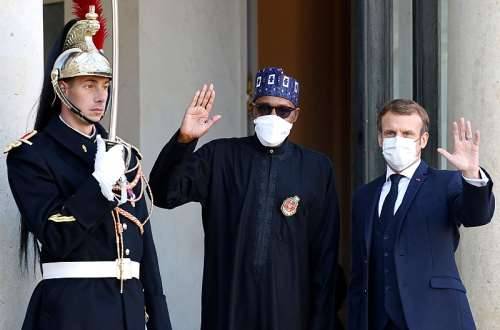Africa is home to the largest number of French speakers in the world – 120 million people in 24 francophone countries. As the world marks the United Nations French language day on 20 March, The Conversation's West Africa regional editor, Adejuwon Soyinka, asked academic and author Kathleen Stein-Smith about the impact of the French language on Africa and the continent's impact on the language.
How widespread is French in African countries?
French is a global language, spoken by 300 million people around the world. Africa, a region of strategic global importance, is home to the largest number of French speakers.
French is the sole official language in 11 African countries and the second official language in an additional 10 countries in Africa.
Africa plays a key role in both the present and future of French, a fact which has been recognised by the Organisation Internationale de la Francophonie . The organisation, which observed its 50th anniversary in 2020, has its roots in Africa. Its current president, Louise Mushikiwabo , is from Africa.
Why do former French colonies in Africa continue to encourage the use of the language?
The language offers access to information, education, media, and culture around the world. It increases the ease of doing business with external Francophone partners. French language skill also facilitates career and professional opportunities both locally and globally. The Organisation Internationale de la Francophonie publishes a report on the status of the French language in the world, La Langue francaise dans le monde , every four years. The most recent report mentions that French is the fifth most widely spoken language in the world.
It has 300 million speakers and this number has increased by 10% in the most recent four-year period studied.
What impact has the use of French language had on the African countries where it is spoken?
In 2018, the French government launched a worldwide campaign for French, based on communication, culture and creation. French president Emmanuel Macron specifically highlighted the importance of French in Africa in the worldwide campaign launch, stating that French could be “the number-one language in Africa … and maybe even the world.”
The “soft power” of France and of the French language rests in the power of its ideas and the influence of French culture and values throughout the world.
Africa is of strategic importance, both globally and within the French-speaking world. French offers an opportunity to connect directly with other cultures, with education and information, with career opportunities, and with media and the arts. The role of French in Africa includes business, notably organising the annual business forum Ambition Africa and the networking through the Chambre de Commerce International .
What impact have the languages and cultures of African francophone countries had on the French language?
The future of French is as a global language in an increasingly interconnected world. Africa has a substantial and growing influence within the French-speaking world.
Does the French spoken in Africa feature in French language teaching elsewhere in the world?
The current role and increasing influence of Africa within the Francophone world call for an examination of French language education.
French is the second most studied language in world. But despite the longstanding and growing importance of Africa in the Francophone world, many French language learners do not have the opportunity to learn about Francophone culture in Africa. This presents a challenge for a variety of reasons. On the one hand, many French language learners do not have the opportunity to come to understand the diversity and vibrancy of the language and the culture that could increase interest in French and motivation for study of French.
On the other hand, in an interconnected world characterised by mobility, families everywhere face the challenge of transmitting their family language and culture to their children and future generations.
Francophone families residing in other parts of the world may find that the language and culture of Francophone Africa may not always be included in French language education.
Kathleen Stein-Smith does not work for, consult, own shares in or receive funding from any company or organisation that would benefit from this article, and has disclosed no relevant affiliations beyond their academic appointment




No comments yet
Be the first to share your thoughts!